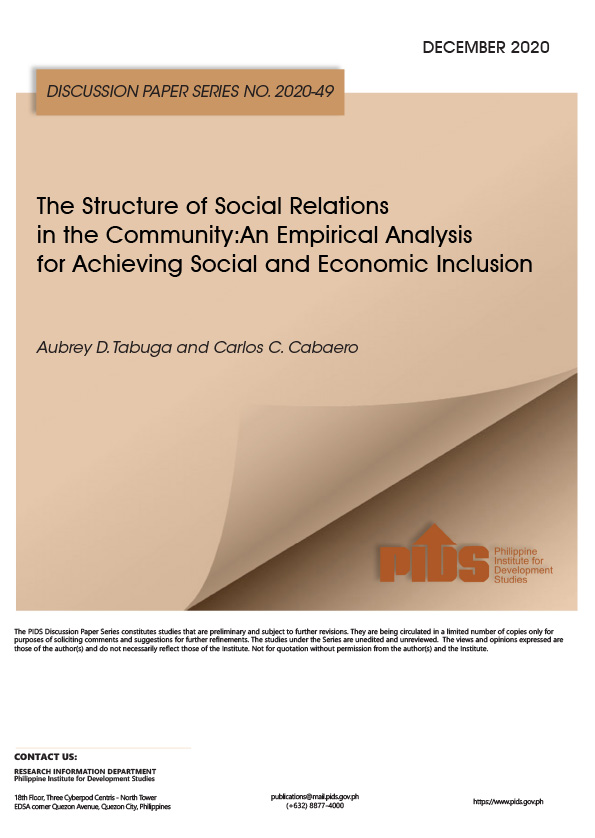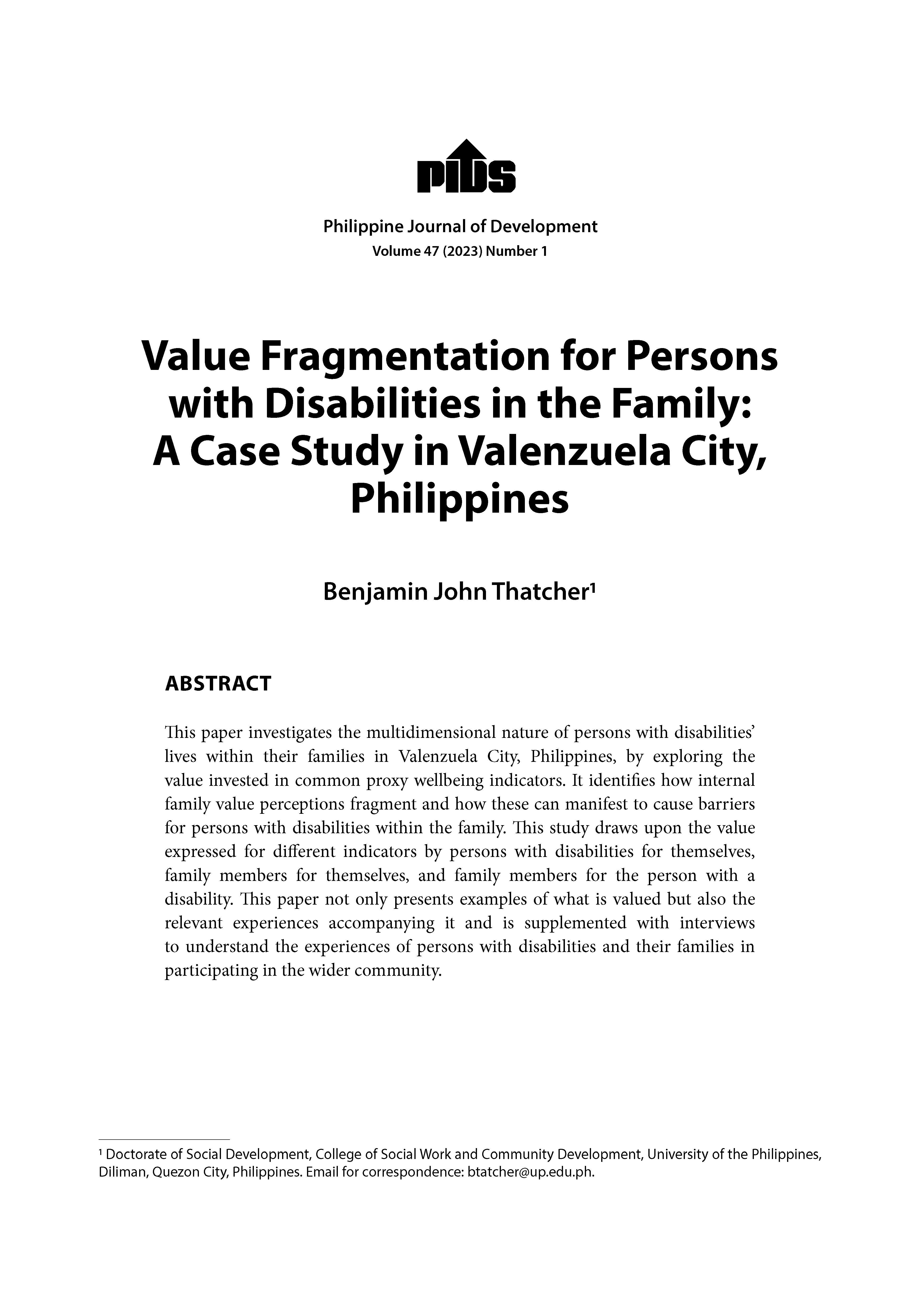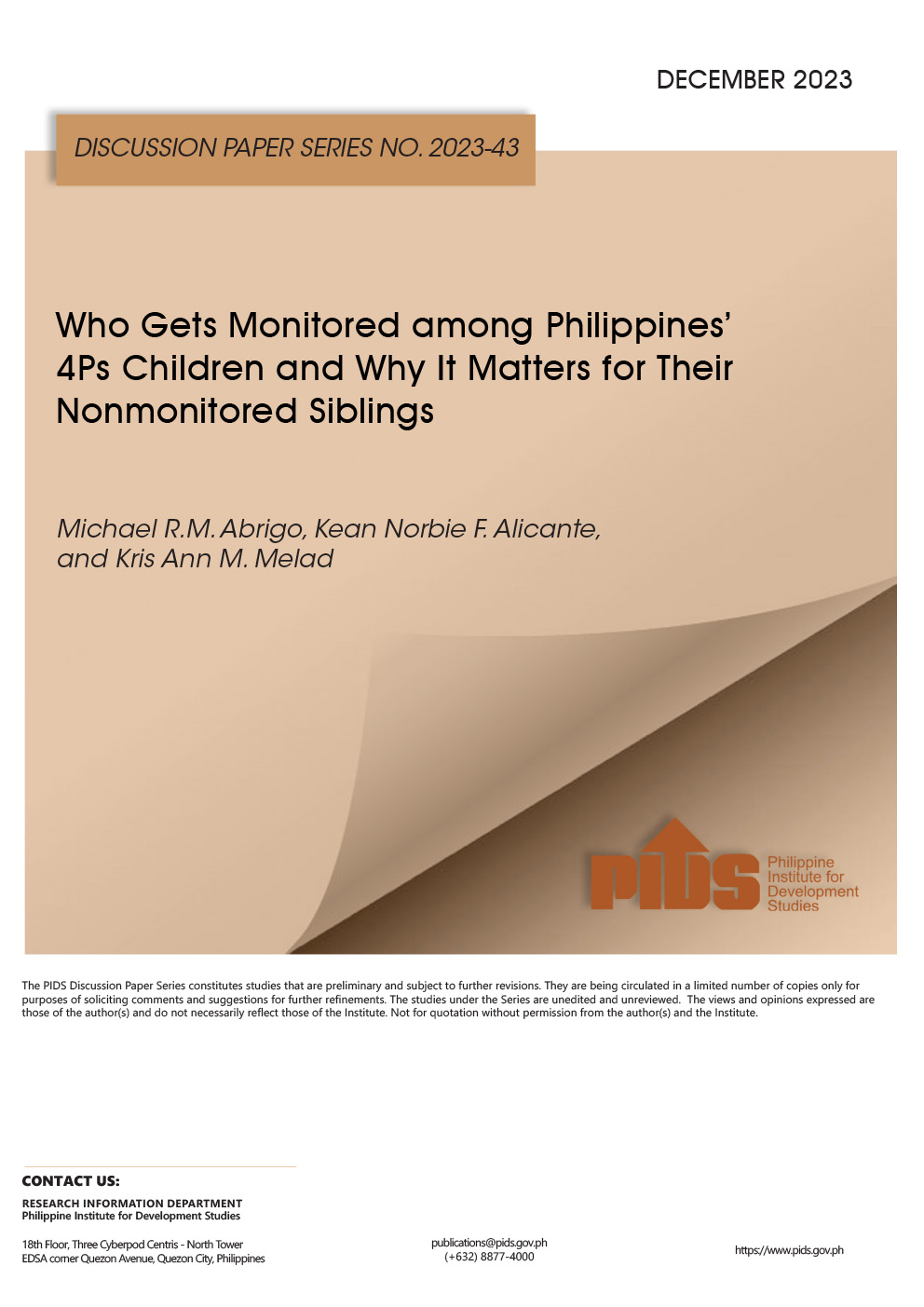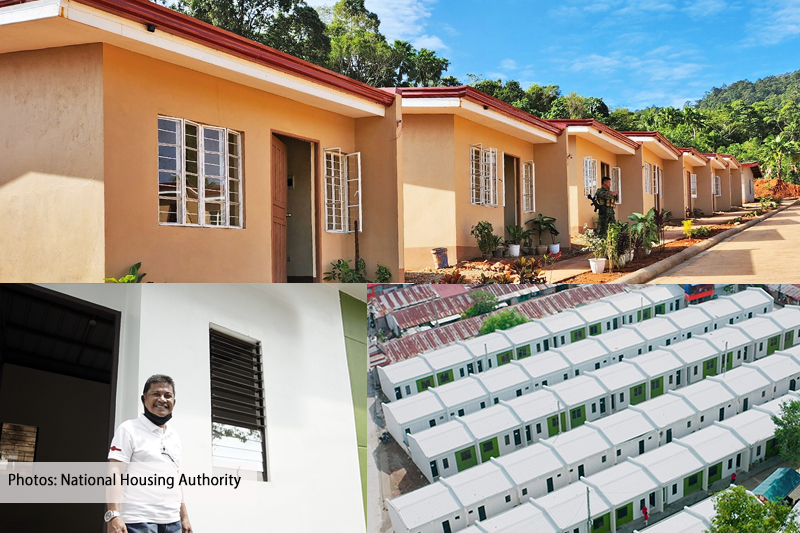More Filipinos will become food poor if they are not educated, unemployed, bereft of assets, live in conflict areas and those affected by weather disturbances, according to the Philippine Institute for Development Studies (PIDS).
In a discussion paper, titled “Chronic Food Poverty in the Philippines”, PIDS senior research fellow Connie Bayudan-Dacuycuy and research specialist Lora Kryz Baje said these factors are the most common determinants of chronic food poverty in the Philippines.
These are also some of the reasons that explain why there are many “never food poor households” in Metro Manila and there are a lot of food poor households in the Autonomous Region in Muslim Mindanao.
This paper finds that rural areas have substantially higher percentage of always food poor households than urban areas,” the authors said. “Results show that the probability of chronic food poverty is affected by education, employment, assets, conflict and rainfall deviation.
Dacycuy and Baje added this is also the reason it is important for the government to provide living assistance, such as meals and transportation, to students enrolled in state universities and colleges (SUCs) nationwide.
While the President ratified the extension of free tuition in SUCs, meals and transportation stipends are important to ensure that students from poor households will complete their tertiary education.
These expenses are equally important to ensure that students from poor households will finish college and that public investments in their education are not wasted,” the authors said.<
The PIDS researchers also urged the government to “carefully consider” the possibility of institutionalizing the Conditional Cash Transfer (CCT) Program.
They said the government would do well to impose time-bound conditions to education under the CCT, which is one of the program’s weaknesses.
In a discussion paper, titled “Chronic Food Poverty in the Philippines”, PIDS senior research fellow Connie Bayudan-Dacuycuy and research specialist Lora Kryz Baje said these factors are the most common determinants of chronic food poverty in the Philippines.
These are also some of the reasons that explain why there are many “never food poor households” in Metro Manila and there are a lot of food poor households in the Autonomous Region in Muslim Mindanao.
This paper finds that rural areas have substantially higher percentage of always food poor households than urban areas,” the authors said. “Results show that the probability of chronic food poverty is affected by education, employment, assets, conflict and rainfall deviation.
Dacycuy and Baje added this is also the reason it is important for the government to provide living assistance, such as meals and transportation, to students enrolled in state universities and colleges (SUCs) nationwide.
While the President ratified the extension of free tuition in SUCs, meals and transportation stipends are important to ensure that students from poor households will complete their tertiary education.
These expenses are equally important to ensure that students from poor households will finish college and that public investments in their education are not wasted,” the authors said.<
The PIDS researchers also urged the government to “carefully consider” the possibility of institutionalizing the Conditional Cash Transfer (CCT) Program.
They said the government would do well to impose time-bound conditions to education under the CCT, which is one of the program’s weaknesses.
Further, the authors urged the government to work with social enterprises (SEs) that can help poor households access financial resources through decent livelihood opportunities.
The government should explore the role of social enterprises, which use local knowledge and resources to address not only financial but social and environmental issues within the community,” the paper stated.
In terms of armed conflict, the authors urged the government to engage various stakeholders to create initiatives that will help the affected communities and other stakeholders.
An example, the authors said, is the initiative of the former environment secretary to involve the New People’s Army into its ecotown projects to encourage communities to use natural resources in a sustainable manner.
The authors added it is important for local government units (LGUs) to get involved in the development of a climate-smart agriculture for communities frequented by typhoons and other weather-related events.
People in rural areas can easily slip in and out of poverty since their livelihood depends on stable environments, such as stable temperature and steady supply of water,” the authors said.
LGUs can tap the People’s Survival Fund (PSF), which was created through Republic Act 10174 signed on August 16, 2012, for their environment-related engagements in communities.
The PSF has an annual appropriation of P1 billion. Despite this, only two projects were approved by the Climate Change Commission for Surigao del Sur and Surigao del Norte with a price tag of only P120 million.
Apart from these, the authors said financing for environment or climate change-related efforts is also available through the adaptation fund (AF) established under the Kyoto Protocol of the UN Framework Convention on Climate Change.
Through the AF, LGUs can have a direct access to international financing that they can use in the design, implementation and monitoring of climate change-related projects.
Further, the authors also said the government can also explore the use of adaptive social protection initiatives.
Without adaptation, those who are at risk of being food poor are most vulnerable to adverse shifts in weather patterns. The program has to evolve with the needs resulting from climate change and changing weather patterns,” the authors said.
The government should explore the role of social enterprises, which use local knowledge and resources to address not only financial but social and environmental issues within the community,” the paper stated.
In terms of armed conflict, the authors urged the government to engage various stakeholders to create initiatives that will help the affected communities and other stakeholders.
An example, the authors said, is the initiative of the former environment secretary to involve the New People’s Army into its ecotown projects to encourage communities to use natural resources in a sustainable manner.
The authors added it is important for local government units (LGUs) to get involved in the development of a climate-smart agriculture for communities frequented by typhoons and other weather-related events.
People in rural areas can easily slip in and out of poverty since their livelihood depends on stable environments, such as stable temperature and steady supply of water,” the authors said.
LGUs can tap the People’s Survival Fund (PSF), which was created through Republic Act 10174 signed on August 16, 2012, for their environment-related engagements in communities.
The PSF has an annual appropriation of P1 billion. Despite this, only two projects were approved by the Climate Change Commission for Surigao del Sur and Surigao del Norte with a price tag of only P120 million.
Apart from these, the authors said financing for environment or climate change-related efforts is also available through the adaptation fund (AF) established under the Kyoto Protocol of the UN Framework Convention on Climate Change.
Through the AF, LGUs can have a direct access to international financing that they can use in the design, implementation and monitoring of climate change-related projects.
Further, the authors also said the government can also explore the use of adaptive social protection initiatives.
Without adaptation, those who are at risk of being food poor are most vulnerable to adverse shifts in weather patterns. The program has to evolve with the needs resulting from climate change and changing weather patterns,” the authors said.












